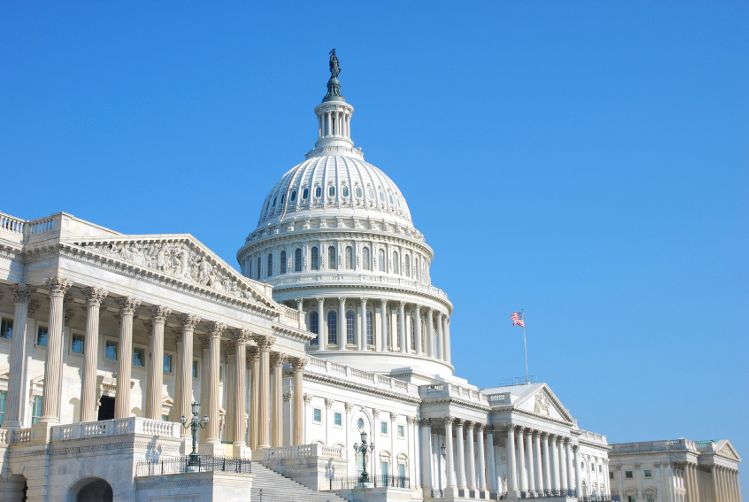Senate HELP Committee has introduced FDASLA, which includes provision for mandatory product listing
Senate HELP Committee has introduced FDASLA without addressing industry concerns about the bill's discussion draft.
Photo © iStockphoto.com/uschools

The U.S. Senate Committee on Health, Education, Labor, and Pensions (HELP) officially introduced FDA Safety and Landmark Advancements (FDASLA) Act on Friday, May 27, 2022. Prior to this, the Senate HELP Committee published its discussion draft. FDASLA is legislation that would reauthorize FDA’s prescription drug, generic drug, biosimilar, and medical device user fee agreements, but also included language that would create a mandatory product listing requirement for dietary supplement manufacturers.
The proposal for a mandatory product registry has been subject to a great deal of debate within the industry, particularly with the introduction of the Dietary Supplement Listing Act of 2022 from Senators Dick Durbin and Mike Braun, and more recently, the FDASLA. Advocates see mandatory product listings as an inevitability given the fact that FDA has been requesting funding from Congress for such an initiative for years, but also believe it will be a useful tool for regulators to take enforcement action against bad actors. Advocates also view this as an opportunity to be transparent as an industry and elevate its reputation.
Detractors and skeptics of mandatory product listings see this as a way of giving new powers to an agency that has been ineffective at enforcing regulations with existing tools at its disposal. Not only would such a requirement increase burden on industry, they say, but the bills as written do not contain explicit language ensuring that the listing does not amount to premarket approval.
Upon publication of the FDASLA, in which the language regarding dietary supplement regulation has remained largely unchanged despite feedback from industry, stakeholders are calling for changes.
“CHPA has been consistent in its support of the policy of Mandatory Product Listing (MPL) for dietary supplements, but we remain extremely concerned with the provisions contained within FDASLA as introduced in the Senate today," said Scott Melville, president and CEO of the Consumer Healthcare Products Association (CHPA; Washington, D.C.), in a prepared statement. "Not only does the language need to be amended to specifically target bad actors and to increase – not decrease – innovation, but the bill should go further to provide consumers with additional assurances regarding the safety and integrity of dietary supplements sold in the U.S."
For example, the bill contains a provision that would require manfacturers to list ingredients in a proprietary blend and the amount per serving of dietary ingredients within a proprietary blend.
The Council for Responsible Nutrition (CRN; Washington, D.C.), which has been in support of the Dietary Supplement Listing Act of 2022, is also criticizing FDASLA. "Mandatory product listing should not be used as a barrier for a compliant dietary supplement to enter the market. Unfortunately, the current draft of this bill does not include this essential protection, nor does it safeguard confidential business information," said Steve Mister, president and CEO of CRN, in a press release. "In addition, this bill includes new language that would grant FDA broad authority to potentially prevent legitimate dietary supplements from entering the market at the whim of the agency."
CRN made the following suggestions to FDASLA:
- "Provide explicit assurance that FDA may neither reject a submission nor create qualifications on submissions that would permit the agency to reject a listing;
- Include assurances that confidential or proprietary business information is protected from release to the public; and
- Avoid creating new prohibited acts which could have unintended consequences for the industry."
These suggestions were made by CRN to the Senate HELP Committee prior to the bill's official introduction. "CRN is dismayed that none of the changes we offered to the discussion draft were incorporated in the bill as introduced. There is still time for the Senate to recognize and incorporate changes to address our objections; however, if our significant concerns are not addressed, CRN is prepared to oppose the inclusion of any provisions relevant to dietary supplements in the FDASLA.”
The American Herbal Products Association also made a number of suggestions for the bill's revision which can be found here.
While, the Senate's FDA user fee reauthorization contains a mandatory product listing provision, the House version did not.
FDA revokes authorization to use Red No. 3 as a color additive in food or drugs
January 15th 2025FDA contends that the color additive is safe for humans but is legally obligated by the Delaney Clause of the FD&C act to revoke authorization as research shows the Red No. 3 induces cancer in rats.